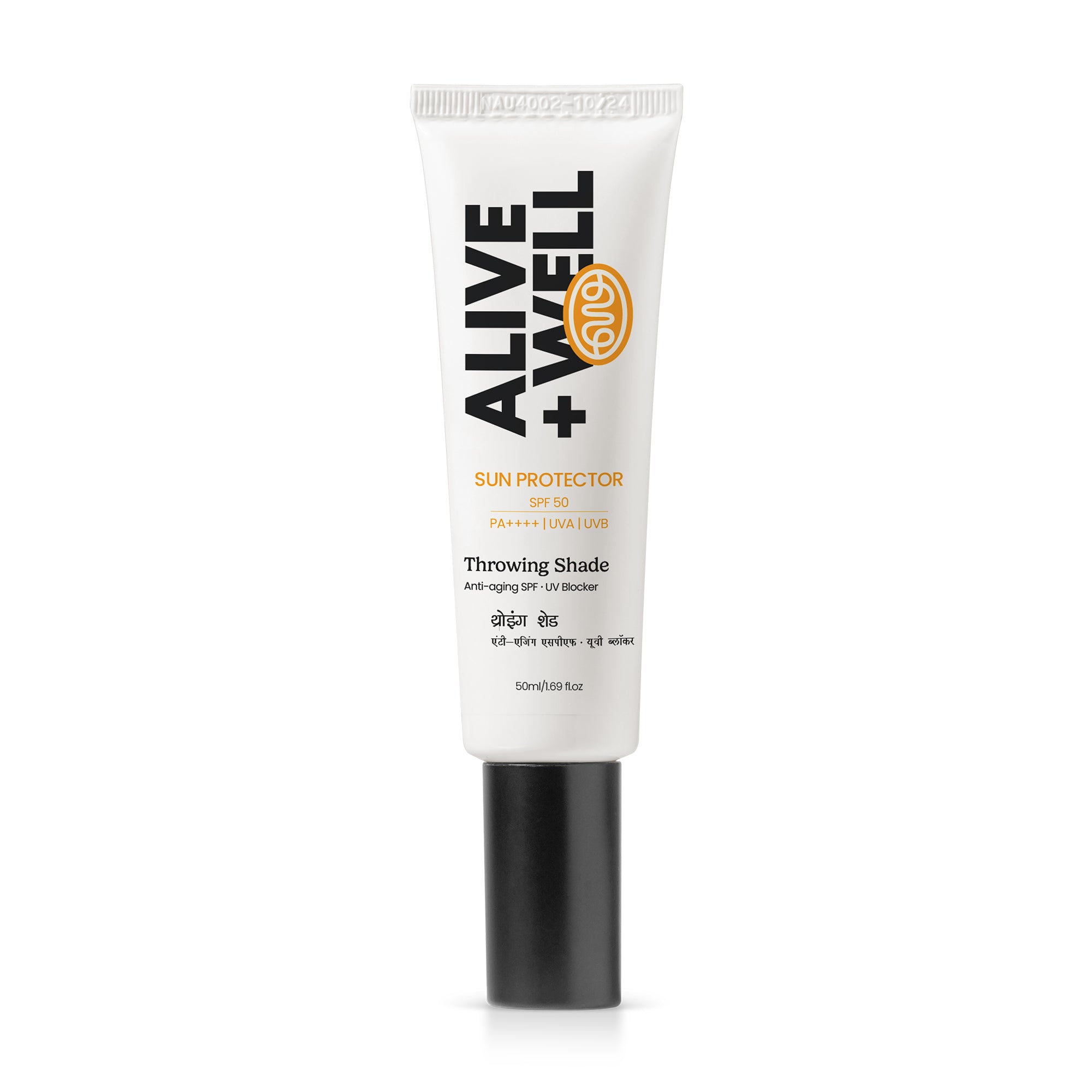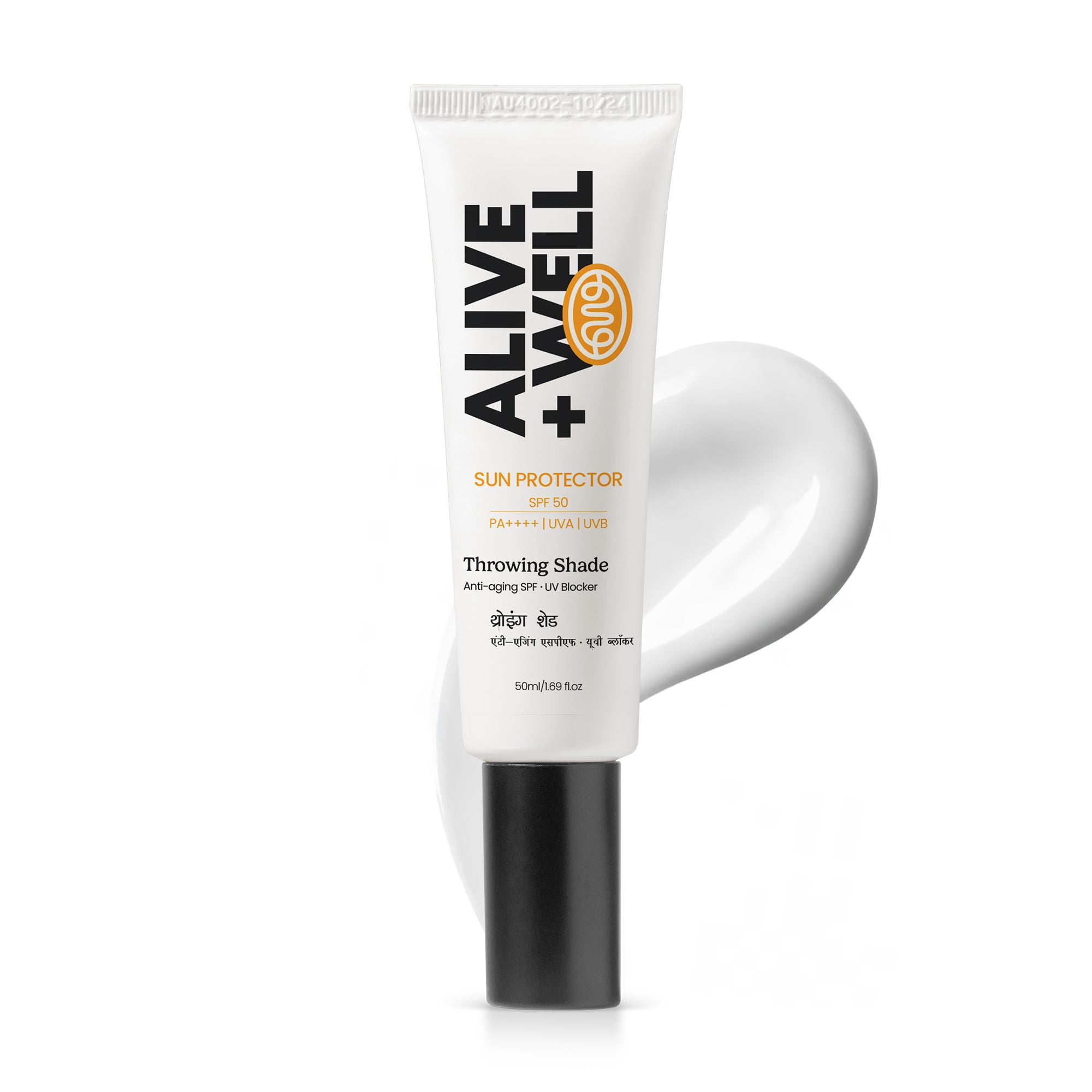Sunscreen For Oily Skin
Sunscreen For Oily Skin
When it comes to skincare, one product that should never be overlooked is sunscreen. Whether it's a hot, sunny day or a cloudy one, the sun's harmful UV rays can cause significant damage to your skin. However, for individuals with oily skin, finding the right sunscreen can be challenging. Heavy, greasy sunscreens may cause breakouts, clog pores, or leave an uncomfortable sheen on the skin. Thankfully, with the rise of specialized products, there are now many sunscreens tailored specifically for oily skin. In this guide, we will explore the best sunscreen options for oily skin, discuss the importance of sunscreen for oily skin, and highlight the best sunscreen for oily skin with SPF 50 available in India.
Why is Sunscreen Important for Oily Skin?
Many people with oily skin make the mistake of skipping sunscreen, thinking it will exacerbate their skin's natural oils. However, this is a misconception. Sunscreen plays a crucial role in protecting your skin from the harmful effects of UV radiation, including premature aging, hyperpigmentation, and even skin cancer. Regardless of your skin type, it’s vital to wear sunscreen every day.
Best sunscreen for oily skin in India
For individuals with oily skin, sunscreen also helps prevent sunburn and dark spots. UV exposure can worsen acne scars, dark spots, and pigmentation, making sunscreen an essential part of the daily skincare routine. Fortunately, modern sunscreens designed for oily skin are lightweight and non-comedogenic, which means they won't clog pores or contribute to breakouts.
Key Features to Look for in Sunscreen for Oily Skin
-
Oil-Free Formula: Look for sunscreens specifically labeled as "oil-free" or "matte finish." These formulas are lightweight and designed to control excess oil production without leaving a greasy residue.
-
Non-Comedogenic: Non-comedogenic sunscreens are formulated to prevent clogged pores, which can lead to breakouts and acne. Always check the label to ensure the product is non-comedogenic, especially if you're prone to acne.
-
Broad-Spectrum Protection: Ensure the sunscreen provides broad-spectrum protection, meaning it shields your skin from both UVA and UVB rays. UVA rays can cause premature aging and wrinkles, while UVB rays are responsible for sunburn.
-
SPF 50: A sunscreen with SPF 50 provides a high level of protection, especially for people with oily skin who are more prone to sun damage. SPF 50 blocks approximately 98% of UVB rays, which is ideal for long-lasting protection throughout the day.
-
Water-Resistant: Choose a sunscreen that is water-resistant, especially if you sweat a lot or engage in outdoor activities. This feature helps the sunscreen stay intact longer, ensuring you get optimal protection.
-
Lightweight and Mattifying: For oily skin, look for sunscreens that are lightweight, gel-based, or water-based. These formulations absorb quickly into the skin and leave a matte finish, helping to control oil production throughout the day.
How to Apply Sunscreen for Oily Skin
-
Cleanse Your Face: Start with a gentle cleanser suitable for oily skin to remove excess oil, dirt, and impurities.
-
Apply a Toner (Optional): If you use a toner, apply it after cleansing to balance your skin’s pH levels.
-
Apply Sunscreen: Take a generous amount of sunscreen (about a nickel-sized dollop) and gently apply it to your face and neck. Don’t forget areas like your ears and the back of your neck, which are also exposed to the sun.
-
Wait Before Applying Makeup: Allow the sunscreen to absorb into your skin for a few minutes before applying any makeup to ensure that it doesn’t interfere with your makeup products.
-
Reapply Throughout the Day: Sunscreen needs to be reapplied every two hours or after sweating or swimming. Carry a small bottle or sunscreen stick with you for convenient touch-ups.
Conclusion
Wearing sunscreen is non-negotiable when it comes to protecting your skin from the harmful effects of the sun. For those with oily skin, choosing the right sunscreen can make all the difference. Whether you are looking for the best sunscreen for oily skin SPF 50, a sunscreen that controls oil, or a sunscreen that won’t clog pores, there are many great options available.
FAQ
1 Why is sunscreen important for oily skin?
Sunscreen protects oily skin from harmful UV rays that can cause premature aging, dark spots, and acne flare-ups. It helps prevent sun damage while preventing clogged pores.
2 Can sunscreen make my oily skin worse?
Sunscreen specifically designed for oily skin has oil-free or matte-finish formulations that won't worsen oiliness or cause breakouts. Look for non-comedogenic and lightweight options.
3 What type of sunscreen is best for oily skin?
Gel-based, water-based, or matte-finish sunscreens are ideal for oily skin. These formulations are lightweight, fast-absorbing, and control excess shine without clogging pores.
4 Should I use SPF 50 sunscreen for oily skin?
Yes, SPF 50 offers high protection against UV rays, which is essential to protect your skin from sunburn, pigmentation, and long-term damage. It’s suitable for all skin types, including oily skin.
5 Can I skip sunscreen if I have oily skin?
No, sunscreen is necessary for all skin types, including oily skin. Skipping sunscreen can lead to sun damage, premature aging, and worsening of skin concerns like acne scars.
6 Does sunscreen help with acne scars on oily skin?
Yes, sunscreen helps prevent dark spots and pigmentation caused by UV exposure, which can worsen acne scars. It also prevents further skin damage.
7 How often should I reapply sunscreen for oily skin?
Sunscreen should be reapplied every two hours, especially if you’re outdoors, sweating, or swimming, to maintain protection from harmful UV rays.
8 Can sunscreen for oily skin be used under makeup?
Yes, sunscreens formulated for oily skin often have a matte finish, making them perfect for layering under makeup without causing excess shine or clogging pores.



